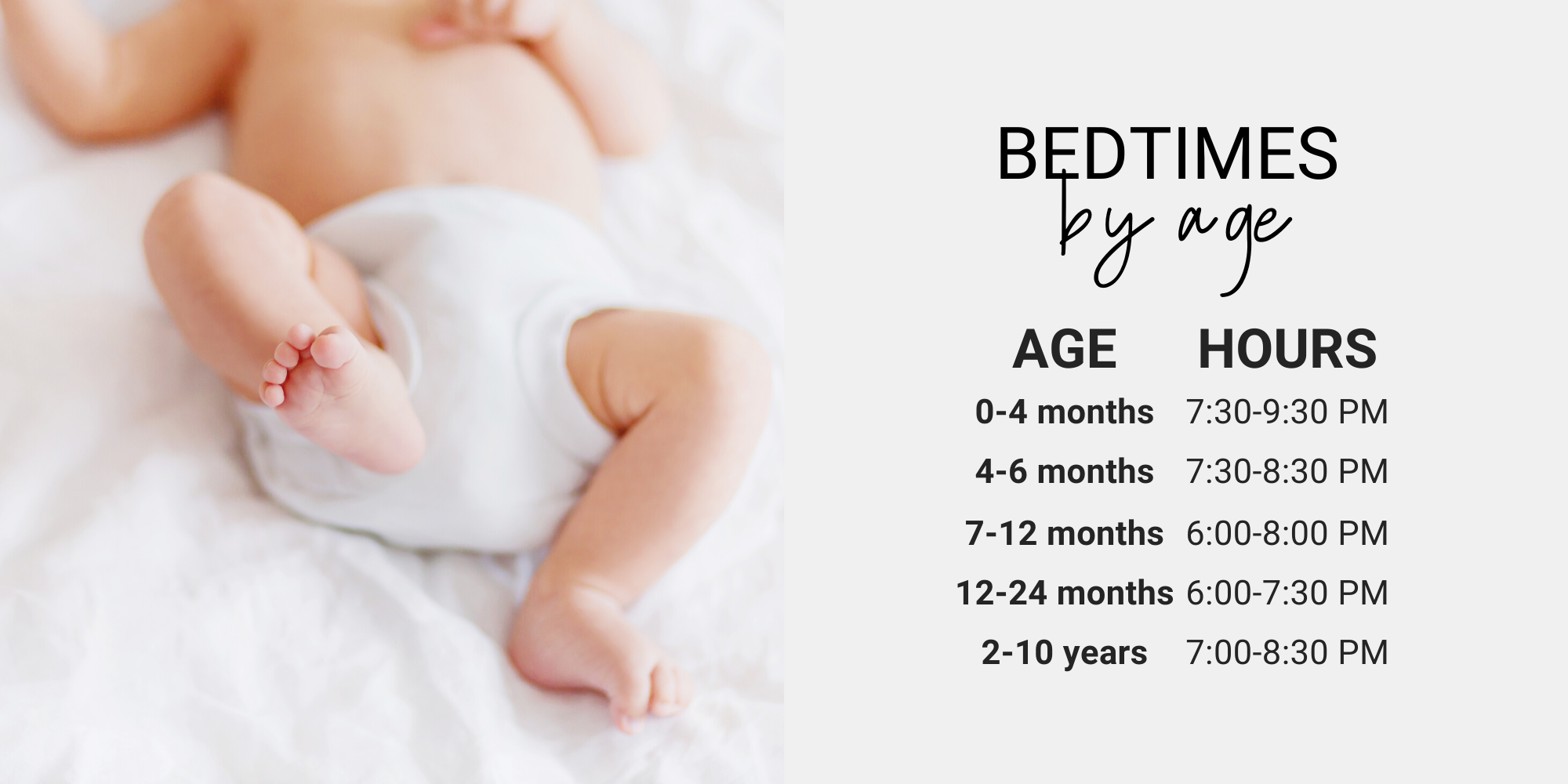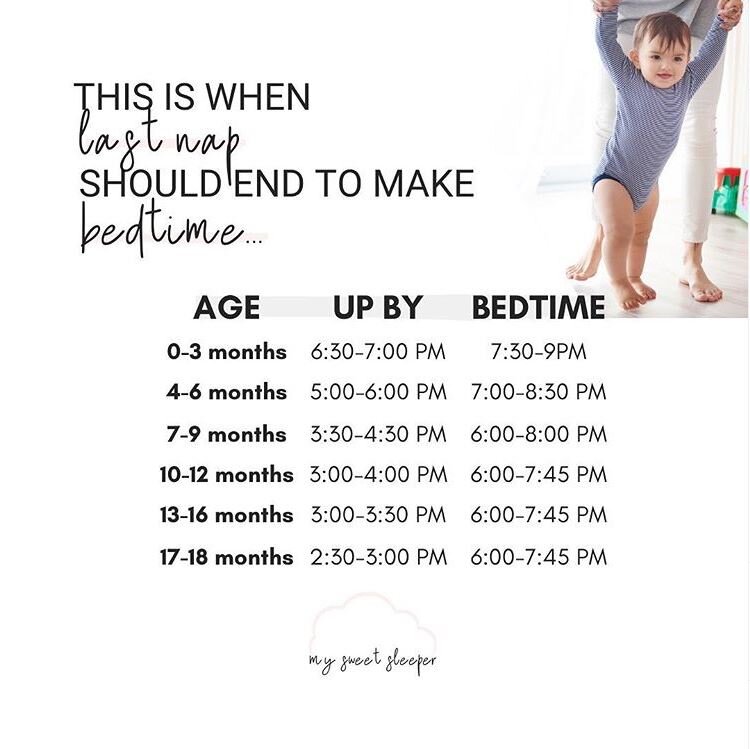This is how early your child should be going to bed
It turns out that having an early bedtime isn’t just a perk that gives you more time to yourself at the end of a long day (although that is a really nice perk).
Research has found that a bedtime as early as 6:30 or 7pm is needed for some children. And while that doesn’t mean that all children need this early of a bedtime, it’s worth thinking through whether your child would benefit from an earlier bedtime.
When children go to bed overtired, they can have a range of different responses, most all of which are negative. While it might seem like your overtired child falls asleep quickly out of pure exhaustion, it can wreak havoc on their night sleep and create a cycle that is hard to break. This is because all babies/children have a natural sleep window and awake windows that are developmentally in line with their age. When you put your baby to sleep later than their body can handle, they aren’t really learning how to fall asleep on their own; rather, they are falling asleep from pure exhaustion, or even worse, having trouble falling asleep because they are over-stimulated and overtired. This is also why some children become hyper when overtired, because they have missed their proper sleep window and have “caught another wind.” More often than not, this results in a meltdown and a bedtime battle.
Let’s take a look at why this happens (just in case you need a bit more convincing ;)...
You’ve likely heard of the hormone, melatonin (our sleepy hormone), which all of us (except newborns) produce as we wind down for the evening.
Melatonin works best when we honor our sleepy cues and let it do its work by helping us enter night sleep in a rested state. Once we miss our sleep window, melatonin can easily be suppressed and our stimulating hormone produced when we're overtired (cortisol) increases. So essentially what is happening is our body gets put into fight or flight mode, instead of calming down and going to sleep (what it originally wanted to do but now will struggle to do).
So how do I know if my child is going to bed at the right time?
Below you will find a list of recommendations by age, which are based on ages and development stages. However, it is also important to honor your child’s sleepy cues (those cute little yawns and eye rubs serve a purpose).
Here’s our guidelines for appropriate bedtimes, based on age (keep in mind, the lower range aligns with the younger age):
Newborns (0 - 3.5 months) - 7:30-9:30pm (later because newborn sleep cycles aren’t yet in place and circadian rhythm isn’t driving sleep)
3.5 - 6 months old - 7-8:30 pm
6 - 12 months old - 6-8pm
12 - 24 months old - 6:-7:30pm
2 - 10 years - 7-8:30 pm
10 years+ - 7:30-9pm
Although these are our recommendations, all children are different and may have different needs based on their daily schedule, naps, etc. However, I don’t recommend a bedtime before 6pm or after 8:30pm for any age (with the exception of newborns). If your child falls outside of the ranges given and is having trouble sleeping at night or during the day, bedtime might be the culprit!
For information on additional studies showing the benefit of early bedtimes, check out our article on consistent bedtimes. To sum it up, studies have shown that kids who have early bedtimes function better cognitively, are less likely to be obese later in life, and get an average of 78 more minutes of sleep each night. That last one is important because studies show that even 30-60 minutes of sleep loss in one night can cause difficulties with concentration.
Regardless of what time your child goes to bed now, it is never too late to shift bedtime a bit earlier. Plus, this hopefully allows for a bit more time alone for you too, parents!
For more sleep guidance, feel free to contact us or try our newborn sleep course or 4-12 month sleep course.
Related articles:
Here’s why consistent bedtimes are more important than you think
These are the alarming dangers of sleep deprivation
This is why I’m so strict about an early bedtime for my baby


